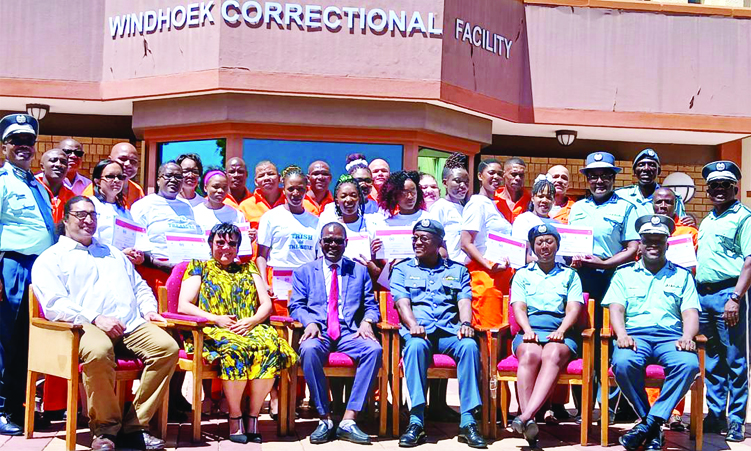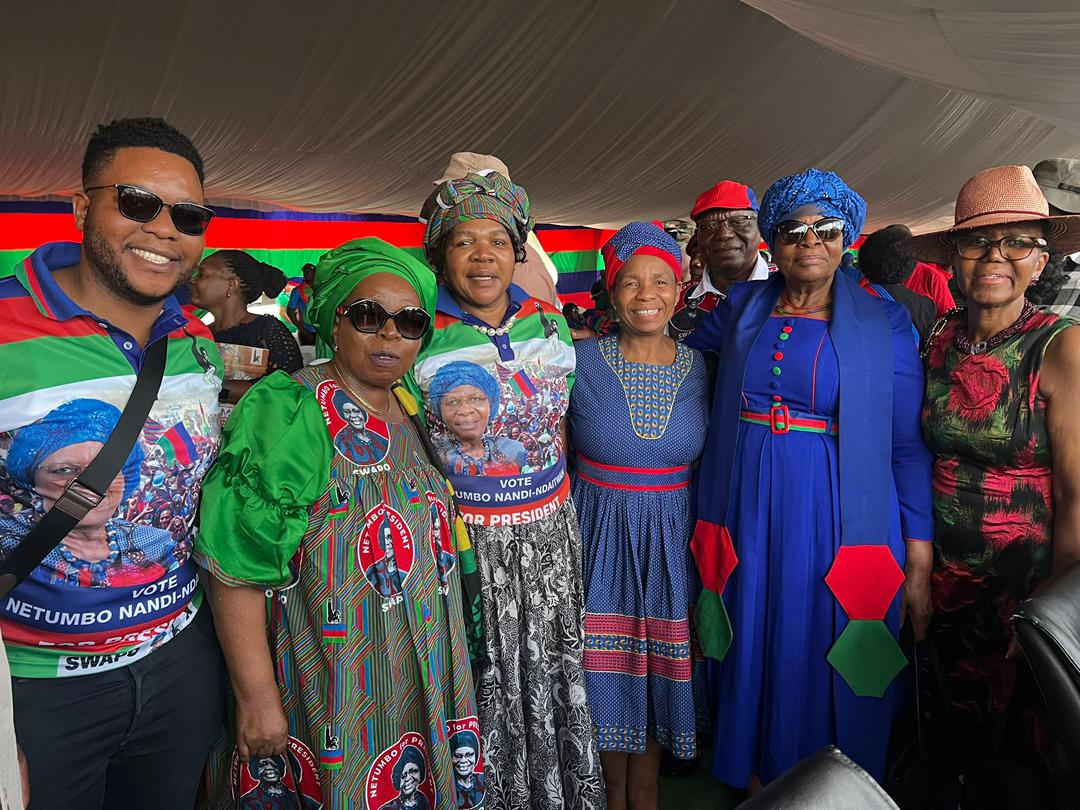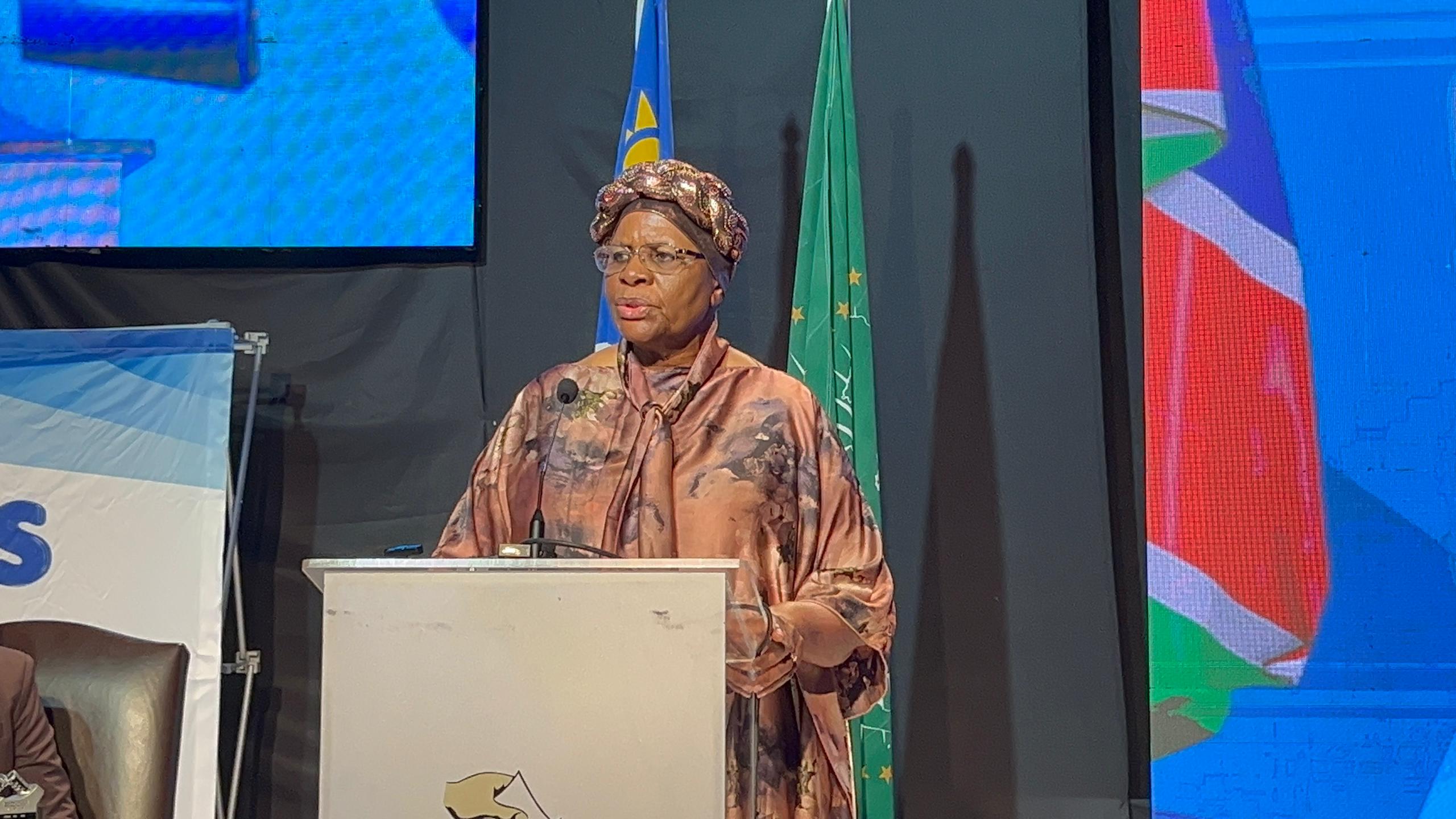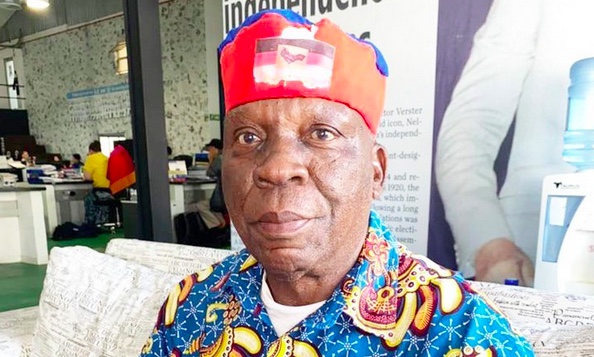Former inmates face numerous challenges that hinder their ability to access economic opportunities and achieve stability, including rejection due to stigma and discrimination.
This is according to University of Namibia (Unam) associate professor and psychology and social work head of department Rachel Freeman.
Freeman was speaking during a certificate handover ceremony at Windhoek Correctional Facility on Thursday.
The social entrepreneurship, financial literacy and transforming solid waste to arts and crafts training was conducted in September at the facility as a collaboration between the Namibian Correctional Service (NCS), Unam and the University of Eastern Finland.
The training was held under the theme: ‘From Trash to Treasure’ (TTT).
“Several former inmates re-enter their communities annually, seeking to rebuild their lives and to fit in in society. However, they face numerous [obstacles] such as low employment opportunities, difficulty in obtaining housing, legal restrictions and the need to understand prevailing technology and societal changes,” said Freeman.
In addressing these barriers, it is important to make efforts that support successful rehabilitation and reduce reoffending, she added.
The TTT initiative applies a therapeutic, eco-friendly and circular economy approach aimed at transforming solid waste materials into valuable arts and crafts products.
The approach seeks to promote positive change by rethinking, recycling, reusing and transforming solid waste materials into treasure.
The initiative aims to rehabilitate inmates using arts and crafts therapy to awaken the social entrepreneur in them by empowering them with the knowledge and skills to break cycles of poverty and unemployment, and reduce reoffending to become self-reliant people, Freeman said.
One effective approach is providing inmates with educational opportunities to attain social entrepreneurship skills to break barriers of poverty and crime, Freeman added.
NCS commissioner general Raphael Hamunyela, speaking at the ceremony, said: “True rehabilitation is about equipping individuals with the tools they need to succeed upon release.
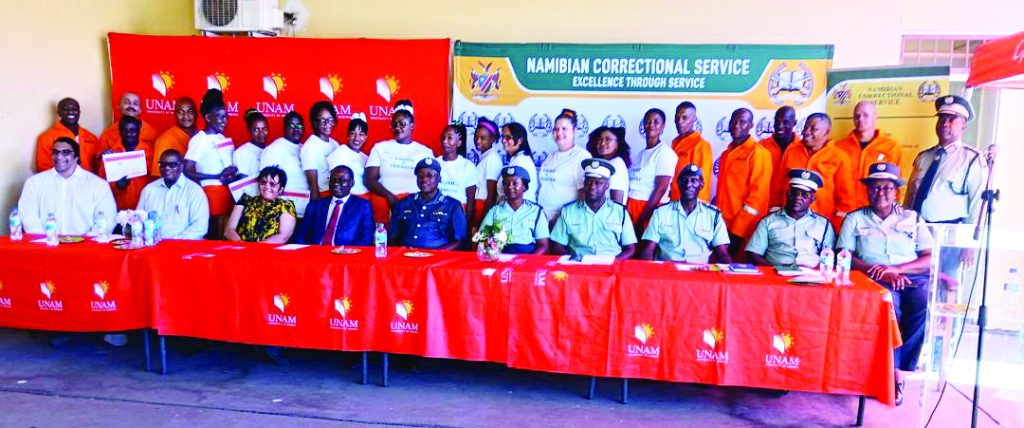
Through the TTT project, the trainees have been given the opportunity to develop sustainable skills that will help them build futures that are not only self-reliant, but also aligned with the values of environmental responsibility and social entrepreneurship.
“It is my firm belief that the skills the inmates have learned through this programme, both practical and entrepreneurial, will potentially open doors for them, whether they choose to continue with crafts or pursue other ventures,” he added.
Unam vice chancellor Kenneth Matengu, in a speech read on his behalf by Unam librarian Joseph Ndinoshiho, said the project successfully equipped inmates with confidence and the competence skills necessary to either establish their own income-generating ventures or secure meaningful employment post-release.
He further said effective social entrepreneurship education, complemented by mentorship and post-release support initiatives, established a strong foundation for enduring positive change and societal reintegration.
A total of 21 inmates, comprising nine men and 12 women, received certificates for completing the programme.
Some inmates shared how they believe the skills they gained will benefit their future.
Tresia Kandjengedi learnt to make baskets and recycle jewellery into decorative items, while Analie Bees learnt how to make pillows.
“This will help me financially and is a skill I will use in future,” said Bees.
Jeremia Swaartbooi learnt woodworking skills to create sculptures which he said changed his life, while Ronnie Seibeb said he learnt a lot and hopes to achieve more to inspire others upon his release.
Eben Cloete noted that the financial literacy programme stood out for him.
“When I was outside, I was working for 30 days and the salary only lasted for 30 minutes. I didn’t know how to handle my finances, but now I know better,” said Seibeb.
Ruben Tjombe, who opted to specialise in woodwork, said he is grateful for the skills he acquired.
The agreement for the collaborative project was signed in November 2021.
Stay informed with The Namibian – your source for credible journalism. Get in-depth reporting and opinions for
only N$85 a month. Invest in journalism, invest in democracy –
Subscribe Now!


